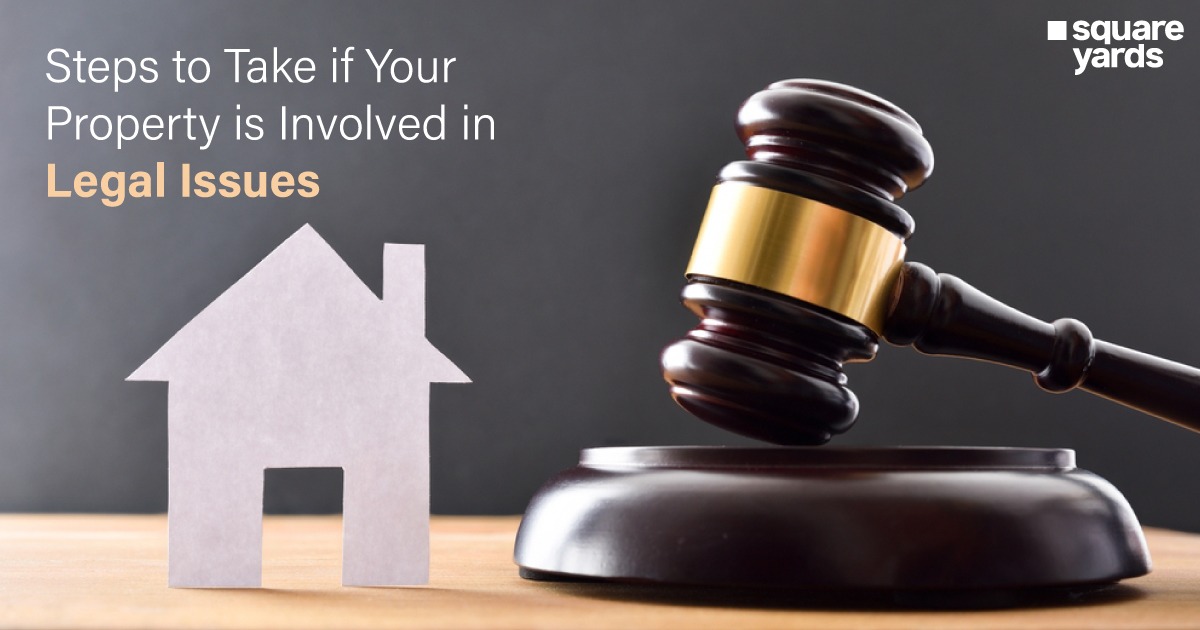Acquiring one’s first piece of real estate marks a crucial developmental stage, symbolising stability and personal accomplishment. On the other hand, unanticipated events can occur at any time, leading to legal trouble associated with your property.
Whether it’s a disagreement with neighbours, a problem with the boundary lines between properties, or a violation of the zoning restrictions, deciphering the complexities of the legalities associated with a property can be overwhelming and unpleasant.
This article will discuss the best practices for dealing with such circumstances to protect your rights and interests. We will provide you with information and tools to handle real estate law, from spotting potential trouble spots to knowing when to see an attorney.
Types of Legal Trouble That May Effect Your Property
The following table lists some typical legal trouble that could affect your property:
| Type of Legal Trouble | Description |
| Property Disputes | Disagreements over property lines, access rights, nuisance complaints, or encroachments with neighbours, tenants, or others. |
| Zoning and Land Use Issues | Violations of the area’s zoning laws include illegal land use, building without permission, or failing to adhere to building rules. This may result in penalties, required changes, or even the destruction of buildings. |
| Easement Disputes | Disputes arise from easements, which permit another party to utilise a section of your land for a certain purpose (such as access to a common driveway or utility lines). |
| Title Defects | Mistakes or discrepancies in public records, hidden liens or encumbrances, unresolved claims from past owners, or fraudulent transfers are all problems that could affect who owns the land. |
| Foreclosure | The lender may start foreclosure procedures if you cannot make mortgage payments. The effects of foreclosure can be lessened by being aware of the rules governing them, negotiating with lenders, or looking for alternatives such as loan modifications or short sales. |
| Environmental Compliance | Environmental legal requirements include contaminating soil or water sources, handling hazardous materials, or failing to comply with environmental impact studies. |
Step-By-Step Process To Solve If Property Is Involved In Any Legal Trouble?
Taking a systematic approach and seeking professional help when your property is embroiled in litigation is essential. Legal issues involving property typically involve the following procedures, though the specifics may vary depending on the nature of the issue:
Identify the Legal Trouble
Learn the specifics of the legal issue raised with your property. Is it a zoning or boundary conflict, a problem with the title, or something else entirely? Knowing the nature of the issue will allow you to acquire pertinent data and retain competent legal counsel.
Consult with an Attorney
Retain the services of an experienced lawyer who focuses on real estate law if you need legal advice. They’ll lend a hand, assess the predicament, and explain your options so you know where you stand legally.
Collect Documentation
Gather the required records, including property deeds, surveys, contracts, letters, permits, and other material about the legal matter.
Review Applicable Laws and Regulations
Get acquainted with the local, state, and federal statutes, rules, and regulations about your legal situation, as you will be better positioned to make decisions and explore options.
Explore Negotiation
Consider investigating alternate dispute resolution strategies like negotiation or mediation. You and the opposing party can come to an understanding through these methods, allowing you to avoid drawn-out and expensive litigation.
Initiate Legal Trouble Action
If your lawyer says that your property matter can not be resolved through negotiation & diplomacy, they may recommend you pursue action against legal trouble.
Follow Court Procedures
If your case goes to court, you must follow all the judicial processes of the court hearing. Attend every case hearing in court and give them any required documents or proof. You may have to negotiate or go to further trial, depending on the case hearing.
Comply with Court Orders or Settlement Agreements
If a court or a settlement agreement issues a ruling is made, you must follow all of the terms and conditions specified in the ruling or agreement.
Monitor and Protect Your Property
You must keep an eye on things and be cautious about necessary things to safeguard your land at all times during the legal process. Ensure your location is secure, follow any short-term rules or regulations, and keep track of any significant events or adjustments.
Regularly Communicate with Your Attorney About Legal Trouble
Always contact your lawyer and ask questions regarding any land problem to clarify everything. Ask questions, seek clarification and share any new information regarding your case as it progresses with your lawyer. Advice from your lawyer will be helpful as you proceed with your case in court.
Summary
Dealing with legal issues related to your property can be difficult and frustrating. However, a methodical approach and expert counsel are essential to successfully negotiate these intricacies and safeguard your interests.
You can deal with legal issues regarding your property if you are well-informed, take preventative measures, and have competent legal representation. The result should be a peaceful and secure ownership situation where your rights have been protected.
FAQs
How can I resolve a zoning violation on my property?
The norm is to work with local authorities to resolve a zoning violation. Learning about precise infractions and relevant laws is important. You may need to apply for a zoning variance or special use permit to bring your property into conformity. Consult a real estate attorney who is experienced in such matters.
What should I do if there is a title defect on my property?
You should go to an attorney specialising in real estate law and get title insurance.





